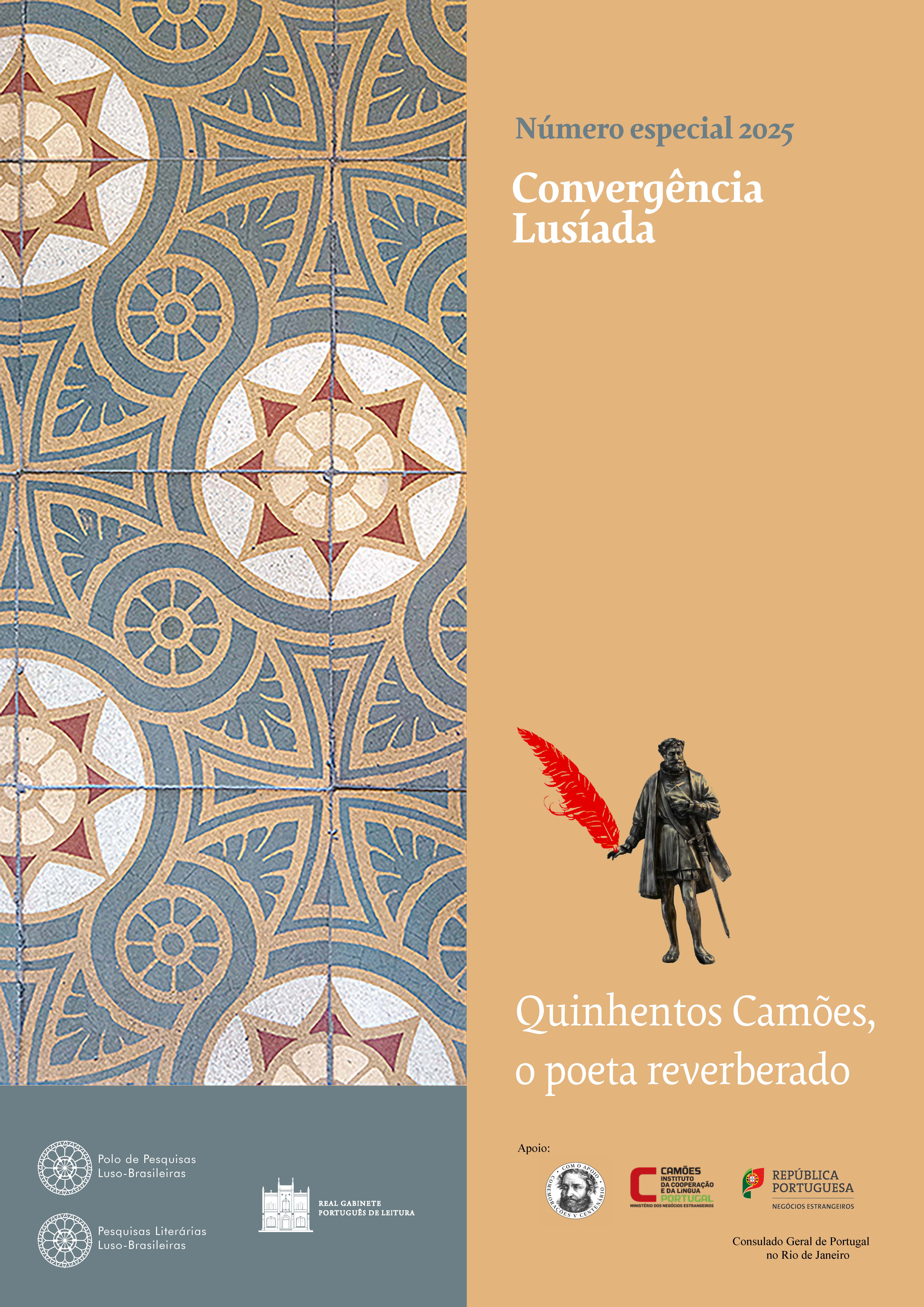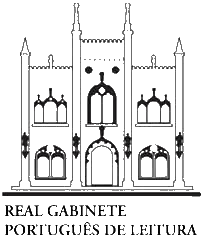Nineteenth century's rereadings of Camões
DOI:
https://doi.org/10.37508/rcl.2025.nEsp.a1359Keywords:
romanticism, António Feliciano de Castilho, female writers, The Vault, Alexandre HerculanoAbstract
The 19th century elevated the figure of Luís de Camões to a sculptural level, as Teófilo Braga had already indicated before the tercentenary celebrations. Since Bocage and Garrett, several writers have sought to associate themselves with this poet. In this article, I propose to analyze some recurring aspects that marked the construction of this ideal and some fictional constructions of Camões in Portuguese Romanticism to examine his use far beyond a simple sculptural character. To this end, I focus on texts that are less well-known today but were widely circulated in their time, such as those by António Feliciano de Castilho, a poem by the poetess Maria Adelaide Fernandes Prata, and a narrative by Alexandre Herculano. In this way, I hope to be able to show how the idea that to be like Camões became recurrent that it was necessary to have defended and sung the country. This would prevent the full association of female writers with the Camonian figure. On the other hand, it allowed Herculano, who was also a soldier and a poet, to sing and tell stories about Portugal in different genres, with the aesthetic freedom he advocated, associating his image with that of the author of The Lusiads, even without referring directly to him or his work.
Downloads
References
ALONSO, Cláudia Pazos. Francisca Wood and Nineteenth-Century Periodical Culture: pressing for change. Cambridge: Legenda, 2020. DOI: https://doi.org/10.2307/j.ctv16kkzkt
ALVES, Ida Ferreira. Cartas de António Feliciano de Castilho a Camilo Castelo Branco no Real Gabinete Português de Leitura do Rio de Janeiro. Convergência Lusíada, Rio de Janeiro, v. 20, n. 22, p. 177-200, 2006. Disponível em: https://www.convergencialusiada.com.br/rcl/article/view/657. Acesso em: 10 nov. 2024.
ANASTÁCIO, Vanda. Onde estão as mulheres? Um percurso didático pela história da literatura portuguesa. Convergência Lusíada, Rio de Janeiro, v. 33, n. 48, p. 12-38, jul.-dez. 2022. DOI: 10.37508/rcl.2022.n48a513. Disponível em: https://www.convergencialusiada.com.br/rcl/article/view/513. Acesso em: 10 jan. 2025. DOI: https://doi.org/10.37508/rcl.2022.n48a513
BLUMENBERG, Hans. A legibilidade do mundo. Tradução de Georg Otte. Belo Horizonte: Editora UFMG, 2023.
BOCAGE. Antologia poética. Selecção e introdução por Maria Antónia Carmona Mourão e Maria Fernanda Ferreira Nunes. 4. ed. Lisboa: Editora Ulisseia, 1985.
BRAGA, Teófilo. Historia de Camões. Parte 1 – Vida de Camões. Porto: Imprensa Portugueza Editora, 1873.
BUESCU, Helena Carvalhão. O Poeta na Cidade: A Literatura Portuguesa na História. Lisboa: Imprensa Nacional, 2019.
CAMÕES, Luís de. Os Lusíadas. Edição organizada por Emanuel Paulo Ramos. Porto: Porto Editora: 2000.
CASTILHO, Antonio Feliciano de. Camões: estudo histórico-poetico liberrimamente fundado sobre um drama francez dos senhores Victor Perrot, e Armand du Mesnil por Antonio Feliciano de Castilho. 2. edição copiosamente acrescentada nas notas. 3 tomos. Lisboa: Typ. da Sociedade Typographica Franco-Portugueza, 1863.
CASTILHO, Antonio Feliciano de. Excavações poéticas. Lisboa: Empreza da Historia de Portugal Sociedade Editora, 1904. v. 1.
CERDEIRA, Teresa Cristina. Da Batalha a Mafra: viagem pelas casas fundadoras da nacionalidade. In: CERDERIA, Teresa Cristina. O avesso do bordado: ensaios de literatura. Lisboa: Editorial Caminho, 2000. p. 21-40.
COMANDULLI, Ana. A escrita do Método Castilho entre capas e dedicatórias. In: ALVES, Ida; CRUZ, Eduardo da (org.). Para não esquecer Castilho: cultura literária oitocentista. Niterói: Editora da UFF, 2014. p. 151-164.
DA CRUZ, Eduardo; LOPES, Lorena Ribeiro da Silva. Maria Adelaide Fernandes Prata (1822-1881): questões de gênero na poesia de autoria feminina no romantismo português. Convergência Lusíada, Rio de Janeiro, v. 34, n. 49, p. 101-141, jan.-jun. 2023. DOI: 10.37508/rcl.2023. DOI: https://doi.org/10.37508/rcl.2023.n49a520
n49a520. Disponível em: https://www.convergencialusiada.com.br/rcl/article/view/520. Acesso em: 9 jan. 2025.
HERCULANO, Alexandre. Eurico, o presbítero. 41ª ed. Amadora: Livraria Bertrand, [194-].
HERCULANO, Alexandre. Lendas e narrativas. Prefácio e revisão de Vitorino Nemésio. Verificação do texto e notas por António C. Lucas. Tomo I. Lisboa: Livraria Bertrand, 1970.
PRATA, Maria Adelaide Fernandes. Poesias [oferecidas às senhoras portuenses]. Porto: Tip. Comercial, 1859.
PRATA, Maria Adelaide Fernandes. Reconhecimento. A Esperança: semanário de recreio litterario dedicado ás damas, Porto, v. 1, n. 15, p. 113, 1865. Disponível em: https://hemerotecadigital.cm-lisboa.pt/Periodicos/AEsperanca/AEsperanca.htm. Acesso em: 9 jan. 2025.
SENA, Jorge de. Para uma definição periodológica do Romantismo Português. In: CENTRO de Estudos do Século XIX do Grémio Literário. Estética do Romantismo em Portugal. Lisboa: Grémio Literário, 1974. p. 65-77.
Downloads
Published
How to Cite
Issue
Section
License
Copyright (c) 2025 Eduardo da Cruz

This work is licensed under a Creative Commons Attribution-NonCommercial 4.0 International License.
Authors who publish in Convergência Lusíada agree with the following terms:
- Authors retain copyright and grant the journal right of first publication with the work simultaneously licensed under a Creative Commons Attribution-NonCommercial 4.0 International License (CC-BY-NC 4.0) that allows others to share the work with an acknowledgment of the work's authorship and initial publication in this journal.
- Authors may enter into separate, additional contractual arrangements for the non-exclusive distribution of the journal’s published version of the work (e.g., post it to an institutional repository or publish it in a book), with an acknowledgment of its initial publication in this journal.
- Authors are permitted and encouraged to post their work online (e.g., in institutional repositories or on their website) prior to and during the submission process, as it can lead to productive exchanges, as well as earlier and greater citation of published work.

Revista Convergência Lusíada is licensed under a Creative Commons - Atribuição-NãoComercial 4.0 Internacional.









